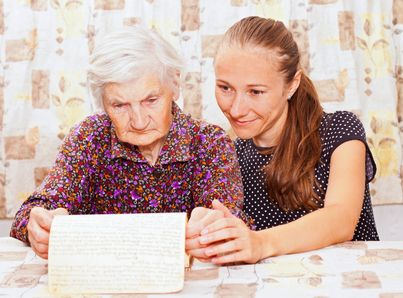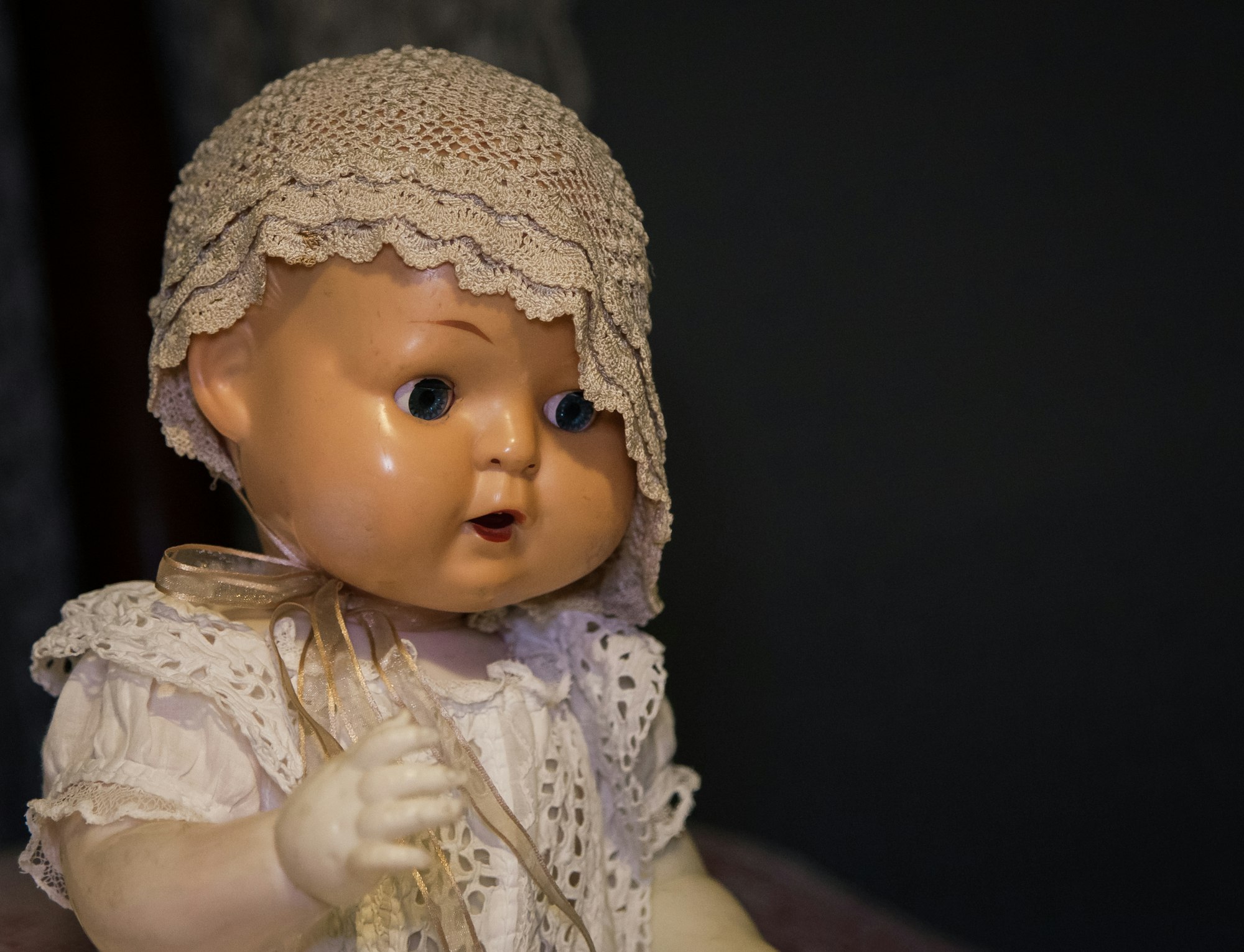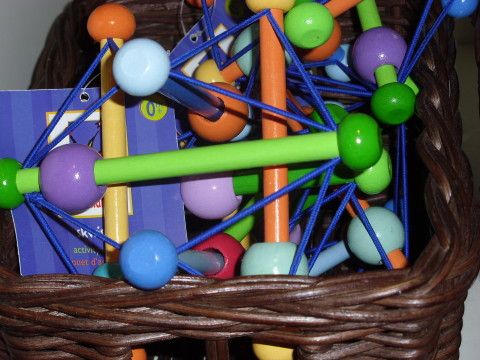45 Great Gifts For Seniors With Dementia In Different Stages: A Guide for Alzheimer's and Other Types
Explore the best gifts for seniors with dementia across all stages, from early cognitive engagement to comforting sensory items for later stages. This guide offers unique, meaningful gift ideas to bring joy, reduce stress, and create lasting memories for loved ones.

In this episode, we will explore meaningful gift ideas specially curated for individuals living with Alzheimer's or other forms of dementia. We understand the significance of selecting gifts that bring joy and comfort to those facing memory impairments. Additionally, we will briefly discuss the progression of dementia, from its early signs to the more advanced stages characterized by severe memory loss.
Understanding Dementia Stages: Dementia manifests in various stages, beginning with mild symptoms like depression and difficulties in task completion. As the condition progresses, memory loss becomes increasingly pronounced.
Gift Ideas for Early-Stage Dementia:
- Memory-Stimulating Gifts:
- Create Personalized Photo Albums: Compile cherished memories in a photo album, fostering reminiscence and emotional connection.
- Digital Photo Frames with Audio Stories: Utilize digital frames to display photos accompanied by audio narratives, preserving their life stories.
- StoryCorps Interviews: Conduct interviews using platforms like StoryCorps to document and cherish their personal history.
- Memory Boxes: Assemble memory boxes filled with meaningful items and mementos to trigger fond recollections.
- Person-Centered Profiles: Develop profiles that celebrate the individual's unique interests, hobbies, and experiences.
- Practical Aids:
- Talking Clocks: Provide talking clocks to assist with time management and enhance communication.
- Photo Phones: Equip them with photo phones featuring visual cues for easier communication.
- Online Shopping Assistance: Encourage elderly women to continue their gift-giving traditions by guiding them through online shopping experiences.
- Cooking and Recipe Preservation: Preserve family recipes and create cooking videos together, promoting comfort and well-being.
- Pre-Stamped Cards: Offer pre-stamped cards to simplify correspondence and stay connected.
- Classic TV Shows and Music Playlists: Curate recordings of classic TV shows and personalized music playlists.
Gift Ideas for Later-Stage Dementia:
- Stimulation and Comfort:
- LED Lights: Install calming LED lights to create a soothing ambiance.
- Sports Memorabilia: Display sports memorabilia or items related to their interests.
- Brain Games: Engage them with stimulating brain games and puzzles.
2. Connection and Well-Being:
- Personalized Video Messages: Create heartfelt video messages from loved ones, fostering a sense of connection.
- Bird Watching Gifts: Set up bird watching stations to bring the outdoors inside.
- Transportation Vouchers: Provide vouchers for transportation services to enable outings and social interaction.
- Practical Service Gift Certificates: Gift certificates for services like house cleaning or handyman work to alleviate daily burdens.
- Pampering Gifts: Offer relaxation through pampering gifts such as adult coloring books, bath products, and scented lotions.
In conclusion, these thoughtfully selected gift ideas cater to the various stages of dementia, focusing on stimulating memory, promoting overall well-being, and preserving a sense of connection with loved ones. Remember, the key is to celebrate their individuality and create moments of joy and comfort throughout their journey with dementia.
Understanding the Needs of Dementia Patients
When it comes to finding the right gift for a dementia patient, it’s essential to understand their unique needs and preferences. Dementia patients often experience memory loss, confusion, and difficulty with communication, which can make everyday tasks challenging. Gifts that provide sensory stimulation, comfort, and a sense of familiarity can be particularly beneficial.
Consider the person’s current stage of dementia, their interests, and their abilities when selecting a gift. For example, someone in the early stages of dementia may enjoy puzzles, games, or activities that stimulate their mind, while someone in the later stages may benefit from gifts that provide comfort and relaxation.
It’s also important to involve family members and caregivers in the gift-giving process, as they can provide valuable insights into the person’s needs and preferences. By taking the time to understand the person’s needs and preferences, you can find a gift that brings joy, comfort, and a sense of connection.
Gift Ideas for Early Stage Dementia
In the early stages of dementia, gifts that stimulate the mind and provide a sense of purpose can be particularly beneficial. Here are some gift ideas for early stage dementia:
- Puzzles and Games: Engaging activities like crosswords, Sudoku, or chess can help keep the mind active and sharp.
- Cognitive Activities: Encourage reading, writing, or painting to promote cognitive function and creativity.
- Memory Aids: Tools like calendars, planners, or reminders can help manage daily tasks and reduce confusion.
- Sensory Stimulation: Music, aromatherapy, or tactile toys can provide soothing sensory experiences.
- Social Interaction: Conversation starters or social games can help maintain social connections and reduce feelings of isolation.
These gifts can help individuals with early stage dementia stay engaged, active, and connected, while also providing a sense of purpose and fulfillment.
Gift Ideas for Middle Stage Dementia
In the middle stages of dementia, gifts that provide comfort, relaxation, and a sense of familiarity can be particularly beneficial. Here are some gift ideas for middle stage dementia:
- Comforting Items: Soft blankets, pillows, or stuffed animals can offer physical comfort and a sense of security.
- Sensory Stimulation: Music, aromatherapy, or tactile toys can help soothe and engage the senses.
- Relaxation Gifts: Meditation, yoga, or deep breathing exercises can promote relaxation and reduce anxiety.
- Personal Care Items: Grooming kits, bath accessories, or scented lotions can enhance personal care routines and provide a sense of well-being.
- Familiar Items: Family photos, favorite books, or familiar music can evoke positive memories and provide comfort.
These gifts can help individuals with middle stage dementia feel more comfortable, relaxed, and connected, while also providing a sense of familiarity and security.
Gift Ideas for Late Stage Dementia
In the late stages of dementia, gifts that provide comfort, relaxation, and a sense of calm can be particularly beneficial. Here are some gift ideas for late stage dementia:
- Comforting Items: Soft blankets, pillows, or stuffed animals can offer physical comfort and a sense of security.
- Sensory Stimulation: Music, aromatherapy, or tactile toys can help soothe and engage the senses.
- Relaxation Gifts: Meditation, yoga, or deep breathing exercises can promote relaxation and reduce anxiety.
- Personal Care Items: Grooming kits, bath accessories, or scented lotions can enhance personal care routines and provide a sense of well-being.
- Calming Gifts: Nature sounds, calming music, or soothing colors can create a peaceful environment and reduce agitation.
These gifts can help individuals with late stage dementia feel more comfortable, relaxed, and calm, while also providing a sense of security and familiarity.
Personalized and Thoughtful Gifts
Personalized and thoughtful gifts can be particularly meaningful for dementia patients, as they provide a sense of connection and familiarity. Here are some ideas for personalized and thoughtful gifts:
- Personalized Photo Albums or Frames: Create albums or frames with cherished photos to evoke positive memories and provide a sense of connection.
- Customized Blankets or Pillows: Choose favorite colors or patterns to create comforting and familiar items.
- Personalized Music Playlists or CDs: Compile favorite songs or music that holds special meaning.
- Customized Activity Books or Puzzles: Tailor activities to the individual’s interests and abilities.
- Personalized Care Packages: Include favorite snacks, drinks, or personal care items to show thoughtfulness and care.
These gifts can help individuals with dementia feel more connected, loved, and valued, while also providing a sense of comfort and familiarity.

FAQ - 45 Great Gifts For Seniors With Dementia In Different Stages: A Guide for Alzheimer's and Other Types
What are the best gifts for seniors with dementia in different stages?
- The best gifts depend on the stage of dementia—early, middle, or late. Early-stage gifts may focus on cognitive engagement, while middle-stage gifts often emphasize sensory stimulation and positive memories. Late-stage gifts may prioritize comfort and familiarity.
What are good gift ideas for seniors in the early stages of dementia?
- For those in the early stages, consider gifts that support cognitive stimulation and social interaction, such as board games, word search books, or smart speakers for playing favorite music. Items that help organize memory care, like a digital photo frame or memory box, are also helpful.
What types of gifts are appropriate for middle-stage dementia?
- Middle-stage dementia gifts often focus on tactile stimulation and comfort. Options like busy blankets, jigsaw puzzles, and lap blankets can help with fine motor skills and bring warm memories. Stuffed animals and sensory gifts that encourage creative expression are also ideal for this stage.
What are good gifts for someone in the late stages of dementia?
- For those in the later stages, look for comforting and familiar items. A soft blanket, stuffed animal, or a hearing aid-compatible smart speaker playing favorite music can bring comfort and joy. Sensory stimulation gifts that are gentle, like soft lap blankets, can reduce stress and provide comfort.
How can gifts help in memory care for dementia patients?
- Thoughtful gifts can trigger fond memories, enhance social interaction, and support healthy aging. For example, family photos in a digital frame or a memory box can help a person with dementia recall important parts of their life and engage positively with family members.
What makes a gift “ideal” or “perfect” for dementia patients?
- The ideal gift should align with the person’s current abilities, preferences, and stage of dementia. It should support cognitive stimulation, comfort, or sensory engagement and bring positive feelings to the recipient.
What are some homemade gift ideas for seniors with dementia?
- Homemade gifts can be thoughtful and comforting. Consider creating a memory box with items from a loved one’s past, a scrapbook with family photos, or a soft lap blanket for warmth. These can create positive memories and provide comforting familiarity.Why are sensory gifts beneficial for dementia patients?
- Sensory gifts stimulate different senses, which can be especially helpful as dementia progresses. Items like busy blankets, stuffed animals, and jigsaw puzzles encourage tactile stimulation and help with hand-eye coordination, providing enjoyable engagement.
How can family members make gift-giving more meaningful for dementia patients?
- Consider gifts that allow for spending quality time, like art therapy activities, board games, or pet therapy items. This helps loved ones bond and create warm memories with the dementia patient.
Can certain gifts help reduce stress for people with dementia?
- Yes, items like a soft blanket, stuffed animals, or lap blankets offer comfort, while familiar music from a smart speaker can soothe and reduce anxiety. Calming sensory gifts help create a stress-free environment.
What are examples of gifts that support cognitive abilities in early dementia?
- Cognitive stimulation gifts, like word search books, board games, and even smart speakers that can play favorite music, help maintain mental engagement in the earlier stages of dementia.
Are pet therapy items good gifts for people with dementia?
- Yes! Pet therapy items, such as lifelike stuffed animals, can be comforting and calming, providing emotional support for those with cognitive impairment and often triggering fond memories of past pets.
How can gifts like photo frames and memory boxes enhance a loved one’s life?
- Digital photo frames or memory boxes with family photos and keepsakes can help spark conversations and bring joy by reminding dementia patients of happy moments and loved ones, making it easier to connect.
What gift ideas are good for seniors who enjoy reading?
- For an avid reader in the earlier stages, consider large-print books or e-readers. As dementia progresses, memory books with simplified text or familiar stories may be more appropriate and easier to enjoy.
Why is it important to consider the person’s dementia stage when selecting a gift?
- Each stage of dementia has unique challenges and needs. Gifts for early stages may focus on cognitive activities, while middle and late stages often require more comfort-oriented or sensory-focused items, enhancing their quality of life at each phase.
You might also like this article:












